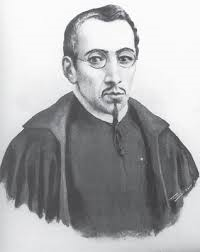Rafael Requena
Requena, Professor Rafael
 Professor Rafael Requena (1879-1946) was a Venezuelan archaeologist, doctor and politician. He was the author of several books including one in 1932; Vestigios de la Atlántida[526] in which he wrote of his belief that Atlantis was a very large island in the Atlantic that was settled by the ancient Egyptians and from there subsequently went on to develop colonies in America.
Professor Rafael Requena (1879-1946) was a Venezuelan archaeologist, doctor and politician. He was the author of several books including one in 1932; Vestigios de la Atlántida[526] in which he wrote of his belief that Atlantis was a very large island in the Atlantic that was settled by the ancient Egyptians and from there subsequently went on to develop colonies in America.
In 1934, Requena was reported in the April edition of Modern Mechanix and Inventions to have concluded that in very early times the world was divided into two large continents, North and South Atlantis and that rock inscriptions then recently discovered in Venezuela by him had been written by people from lost South Atlantis(a).
Sigüenza y Góngora, Carlos de
 Carlos de Sigüenza y Góngora (1645-1700) was born and died in Mexico City. For a time he joined the Jesuits. He was a professor of mathematics and was both an astronomer and a geographer, creating the first map depicting all of New Spain by one of its citizens.
Carlos de Sigüenza y Góngora (1645-1700) was born and died in Mexico City. For a time he joined the Jesuits. He was a professor of mathematics and was both an astronomer and a geographer, creating the first map depicting all of New Spain by one of its citizens.
Writing on the ancient history of Mexico, he speculated on the origins of its inhabitants suggesting that they arrived from Atlantis, which in turn had been colonised by Egyptians[1323]. His views in this regard were heavily influenced by the writings of Athanasius Kircher.
He supported this contention with a list of cultural similarities, in particular, their use of pyramids. This idea of Atlantean migrants was adopted by a number of more recent commentators such as Rafael Requena.
